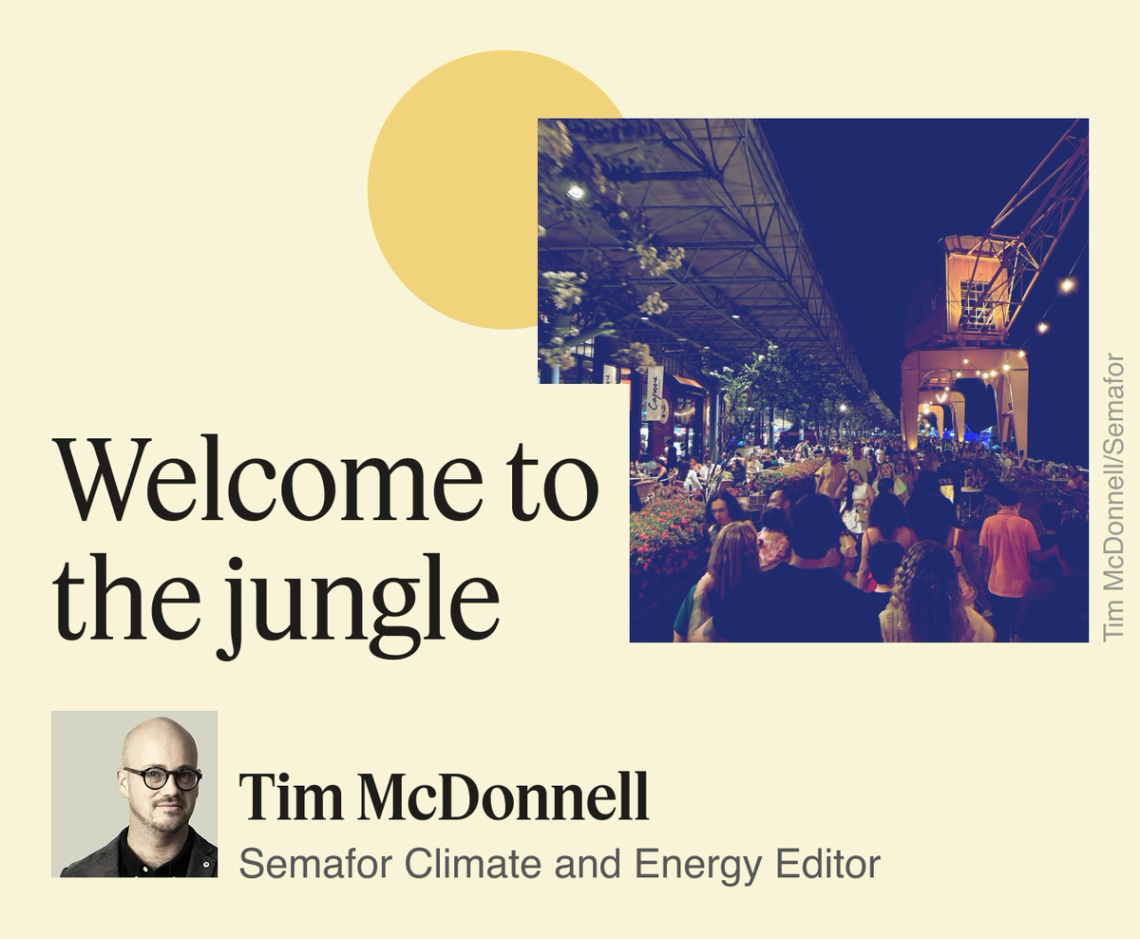 It only took three days of travel from Kyiv, but I’m finally here in Belém, the capital of the Amazon. Despite all the panicky coverage about hotel shortages leading up to COP30, I’m happy to report that I’m not sleeping on a park bench or in a shady “love hotel.” My studio apartment is perfectly cozy, and I spent Sunday enjoying some fresh pineapple juice and wandering through a lively street market with numerous capoeira groups performing. I’m eager to see what global climate politics look like at a time when the US is again out of the picture, many companies are keeping their sustainability goals quiet, and several countries are prioritizing energy security over emissions cuts. The conference got off to somewhat of a dismal start on Friday, with the usual litany of dire statements from world leaders, but the real work starts today. A few things I’ll be watching closely: any signs that the moribund carbon market can get a new lease on life, any detailed new plans from rich countries on how to fill the yawning climate finance gap, and any specific, tangible new targets for climate adaptation, which, although universally acknowledged as an urgent necessity, have often proved hard to quantify and nail down in these negotiations. COP30 is also a chance for China to show what its version of climate leadership looks like. The country’s new carbon-cutting plan was widely viewed as a letdown, although as The Guardian noted, “China has a long history of underpromising and overdelivering” on climate targets. The streets of Belém are already filled with Chinese EVs, a demonstration of the high priority manufacturers like BYD have placed on Latin American markets. Over the weekend, China agreed to join a new coalition linking several global carbon markets. And in his address to the summit last week, Chinese Vice Premier Ding Xuexiang made clear that the country’s principal contribution to the climate fight will continue to be dominating the global market for clean tech: A top diplomatic priority for the summit, he said, will be to push back on what China views as harmful trade barriers like the European Union’s CBAM, “to ensure the free flow of quality green products to better meet the needs of global sustainable development.” If you’re here and working on any of these issues, or just want to grab a caipirinha, drop me a line. Or come find me at the America is All In pavilion, where I’ll be moderating some sessions on Tuesday afternoon, alongside surprise last-minute attendee California Gov. Gavin Newsom, who is here to preview what a post-Trump reintegration of the US into these talks might look like. |